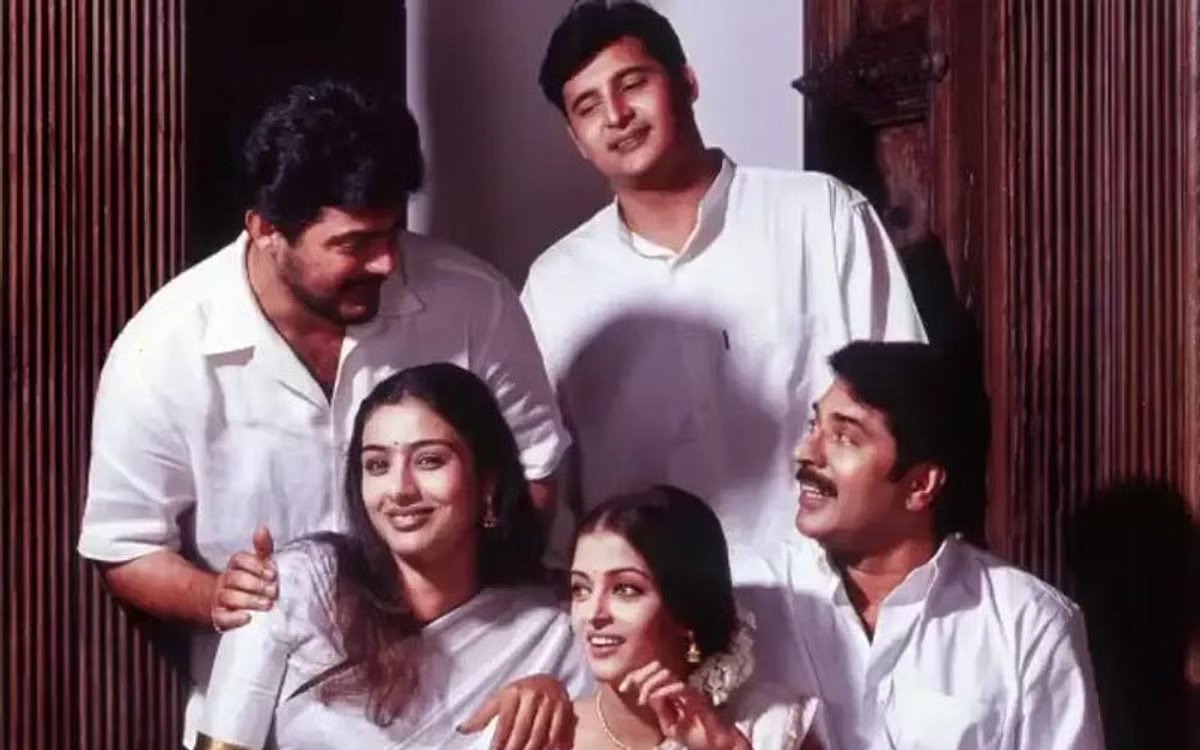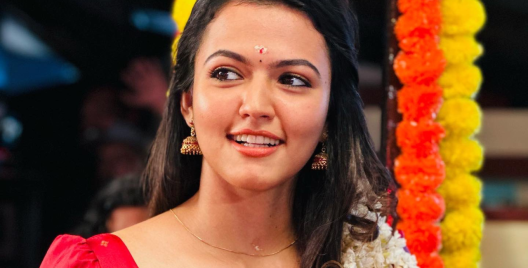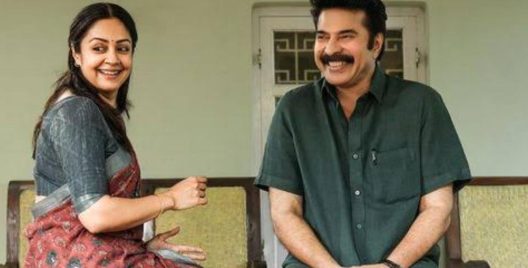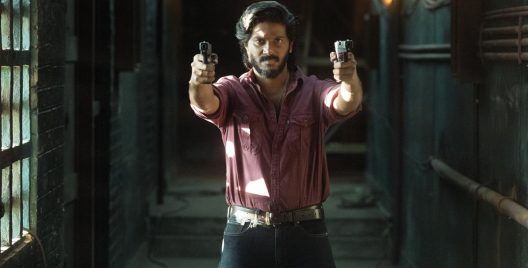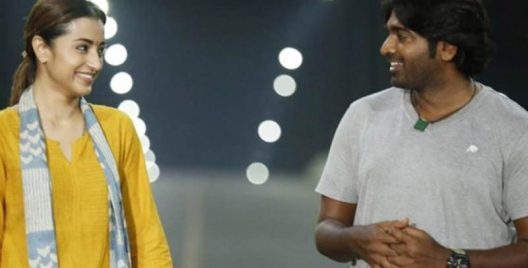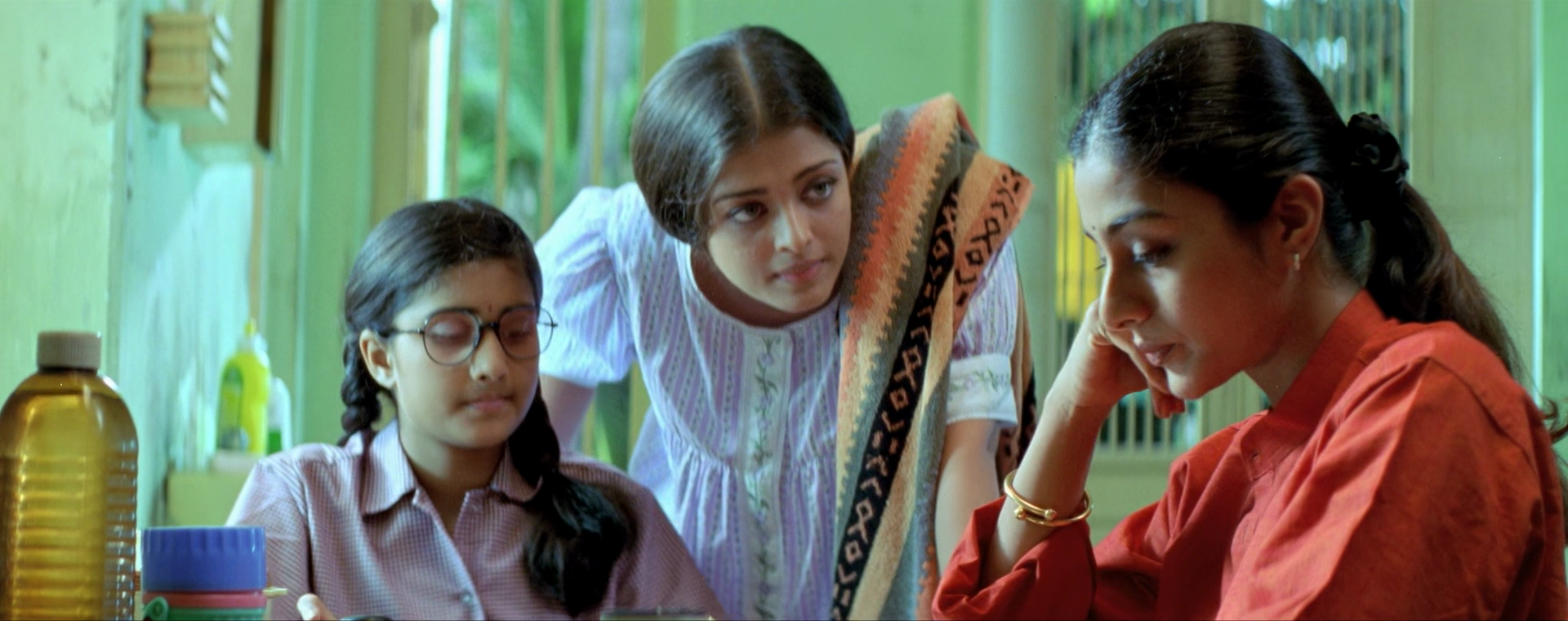
Rajiv Menon’s Kandukondain Kandukondain (2000), which released 23 years ago, is a culturally relevant adaptation of Austen’s Sense and Sensibility. The story revolves around a family of four women, a single mother (Srividya) and her three daughters, who are forced to make their way in a patriarchal world. Of the two older sisters, the eldest Sowmya (Tabu) is sensible and staid and the younger Meenakshi (Aishwarya Rai) is passionate and effusive. Despite their respective paths to romantic relationships being unconventional yet endearing—the core of the story lies in the love between two sisters, not just because they are related by blood but their profound emotional dependence on each other.
The recipe to a faithfully adapted screenplay lies in perfecting the balance between 1. Keeping it true to the original text and 2. Engaging the audience by staying relevant to the current socio-political landscape. Rajiv Menon aces both these points despite it being a musical with eight songs and two well-established male leads.
Evolution of Gendered Spaces
The house and the patriarchal system that allows only male heirs to inherit is an important plot point in the original story. Rajiv Menon adapts that to an ailing grandfather who once refused to pass on his inheritance to his daughter (Srividya) who married against his will. The death of the grandfather results in four women’s loss of their home.
In Ang Lee’s 1995 film adaptation, the hierarchy of power and agency was represented by a topographical trope called ‘gendered space’ where men were seen outdoors, confidently inhabiting, riding horses, using the wide fertile landscape which they do own; while the women of the film for the most part indoors, framed and contained by walls.
In Kandukondain Kandukondain though Sowmya (Tabu) is a well-educated school principal, the discussions and labels around her ‘ill-luck’ because, a few years ago, her fiance died by suicide establish how women were still confined by patriarchy.
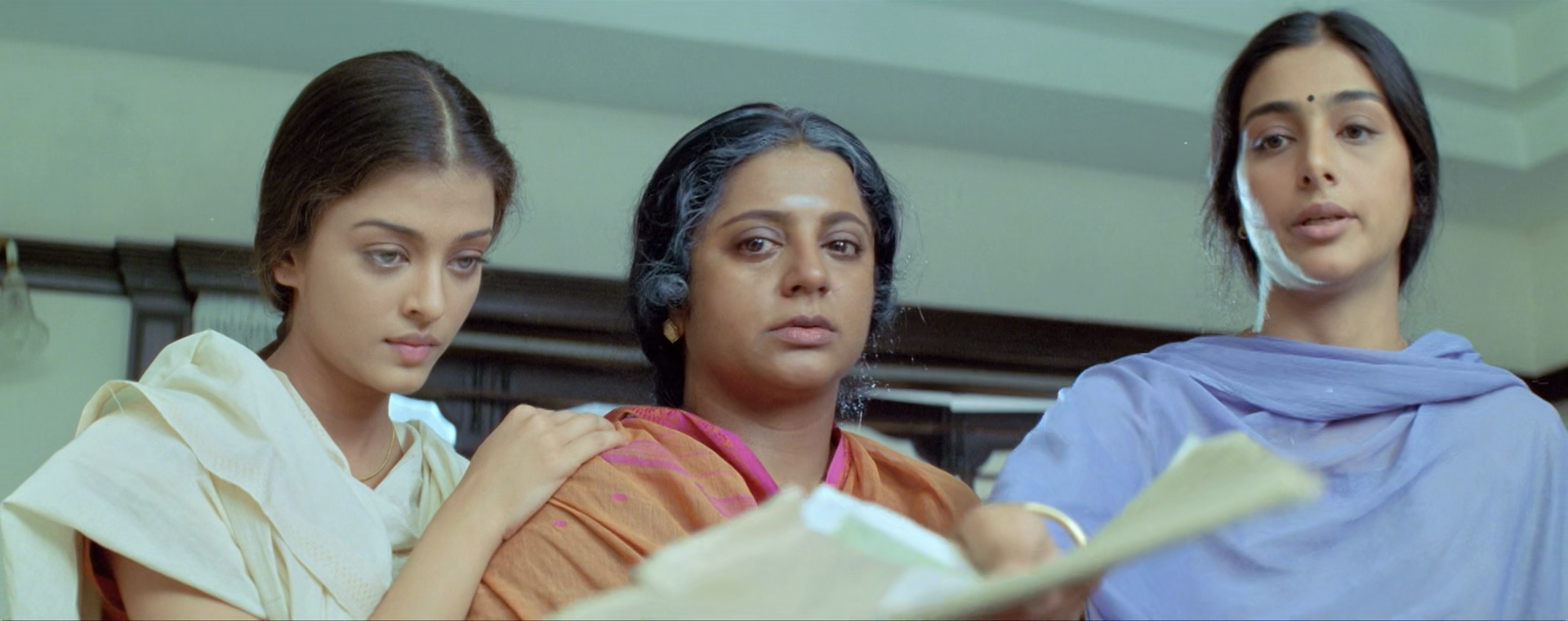
When the aunt (Anita Ratnam), the low-key villain who pushes the women out of their home without any financial support, finally tries to redeem her actions after her husband’s (Nizhalgal Ravi) death, the sisters refuse to take the house back. They say, “Our to-be husbands shouldn’t marry us for our inheritance but for who we are beyond that.”
Sowmya’s meet cue with Manohar (Ajith Kumar) happens because of the house, where Manohar, an Assistant Director enters the house, and engages the conversation with the family about renting out the house for a movie shooting, while the family presumes he’s here to meet the family for an arranged marriage. In the climax when Sowmya confronts Manohar for subconsciously believing in her ‘ill-luck’ aura, she confines herself within the walls of her home until the echoes of the famous background music by AR Rahman breaks the walls.
Vulnerable Masculinity
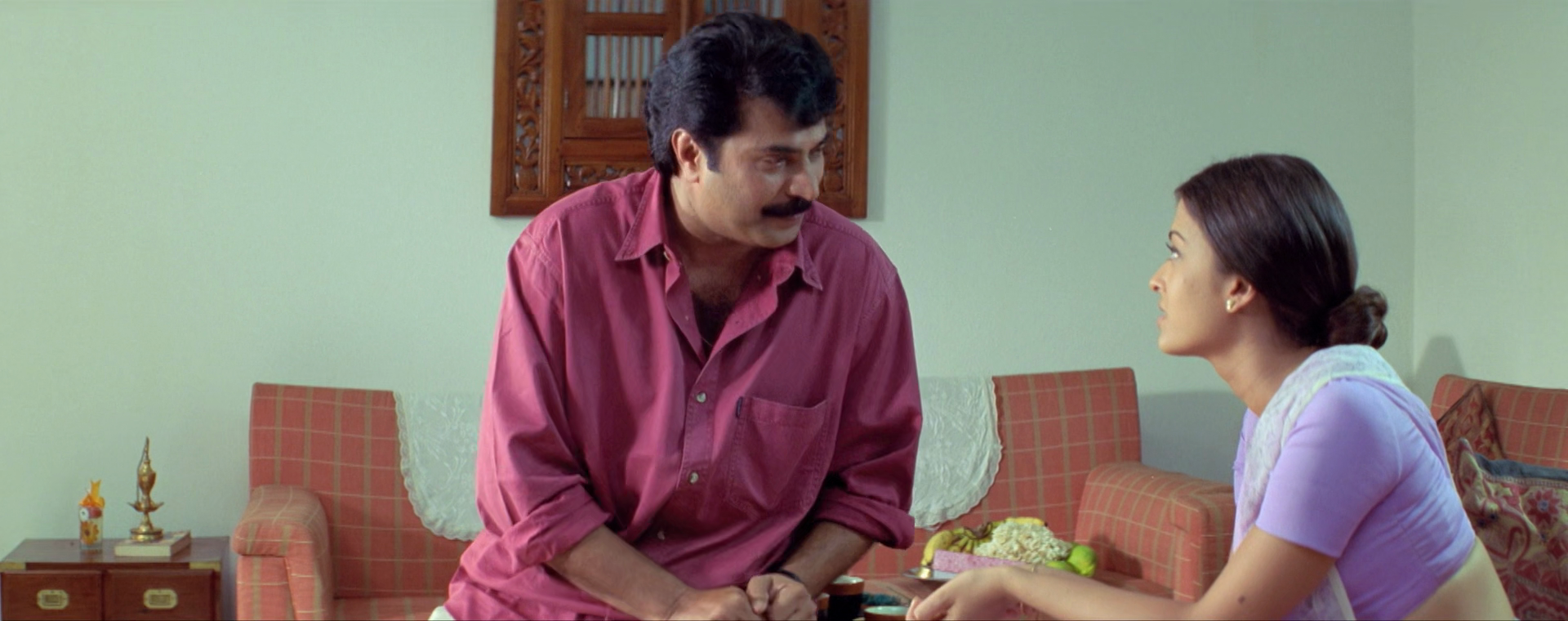
Jane Austen devoured her energy crafting the intricate love between sisters that the men felt plain and unworthy of the sisters. Many subsequent adaptations went beyond source material, especially Emma Thompson’s Oscar-winning 1995 screenplay—which infused men with emotional sensitivity and egalitarian attitudes towards women. Rajiv Menon seems to have followed those footsteps.
At the time of Kandukondain Kandukondain‘s release, Mammootty was at a mammoth peak of his craft, and Ajith Kumar was a rising star. Despite some obvious male gaze and increased screen time for the men, Bala (Mammootty) and Manohar (Ajith Kumar) portrayed masculinity that comfortably embraced women’s desires, autonomy and well-being.
When Meenakshi doesn’t reciprocate Bala’s love, his emotions are hurt but not his ego. He gives her the space she deserves and continues to be a well-wisher that wants nothing but the best for her. Even Srikanth (Abbas) Meenakshi’s prince charming is not the usual macho prince—he wore this heart on his sleeve.
When Sowmya refuses to meet Manohar after his film’s release, he is not afraid to show his emotions, to cry, and asks if this is what she wants. He walks away when she draws a boundary. Even in the end, he only pops a question—if she wants to marry him. The choice is hers. Kandukondain Kandukondain‘s updated versions of early 21st-century men were receptive to women’s needs and desires.
Almost two decades after its release Kandukondain Kandukondain embodies a nuanced version of sisterhood that is still relevant to its time.



